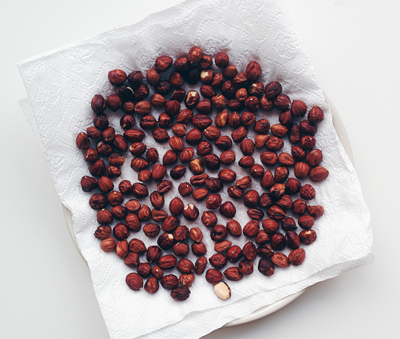So it turns out there is a correct way to soak nuts that makes them more beneficial. Nuts and seeds are sleeping and are not yet ready to germinate. To protect them in their dormant state, they have an anti-nutrient called phytic acid, which tastes very bitter and deters birds and other pests. Phytic acid, when ingested, will bind to minerals in the digestive tract such as iron, calcium and zinc, inhibiting your absorption of them. In order to release this anti-nutrient, nuts and seeds are best soaked and even sprouted – also known as being ‘activated’. The process of soaking mimics an environment in which they may start to grow. Activating your nuts is indeed beneficial, especially for those with compromised digestion.
You can activate any nut or seed with a skin. Try almonds, brazil nuts, hazelnuts, walnuts, pumpkin seeds and pecans. You may be surprised at how much tastier and less bitter they are after this process.
Generally, those that are pale and have no skins such as cashews and macadamias do not need to be activated.
One last note – lemon juice or apple cider vinegar can help to facilitate the process – but water on its own is perfectly fine.
How do I do this at home?

You need:
A large quantity of raw, organic nuts (or seeds)
Water
Apple cider vinegar
- Place your raw nuts (or seeds) in a large glass bowl and cover with filtered water.
- Add a small splash of apple cider vinegar.
- Let soak for a minimum of two hours, ideally overnight.
- Drain the water.
- Spread evenly on a dehydrating tray and dehydrate at 45˚C till completely dry. You can also use an oven or leave it out in the sun to dry.
- Store in an airtight container.
I hope you all have fun activating your stash of nuts tonight!
In good health.


 Supplements
Supplements Skincare
Skincare Superfoods
Superfoods Bundles
Bundles
















